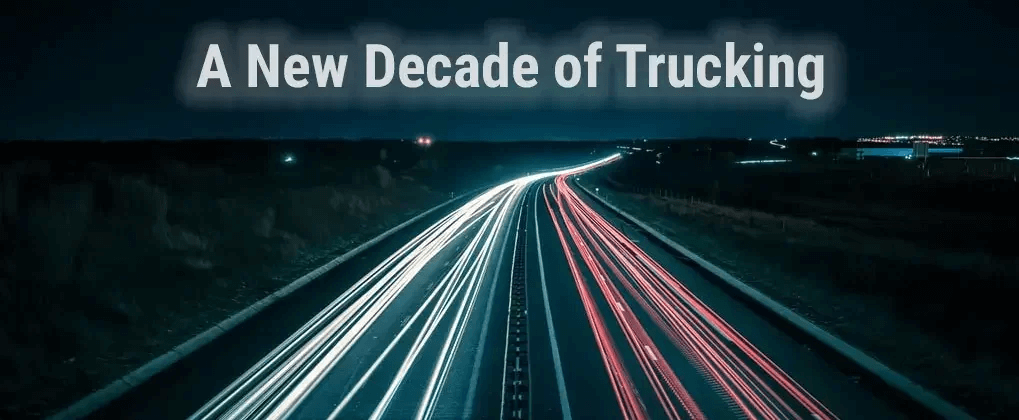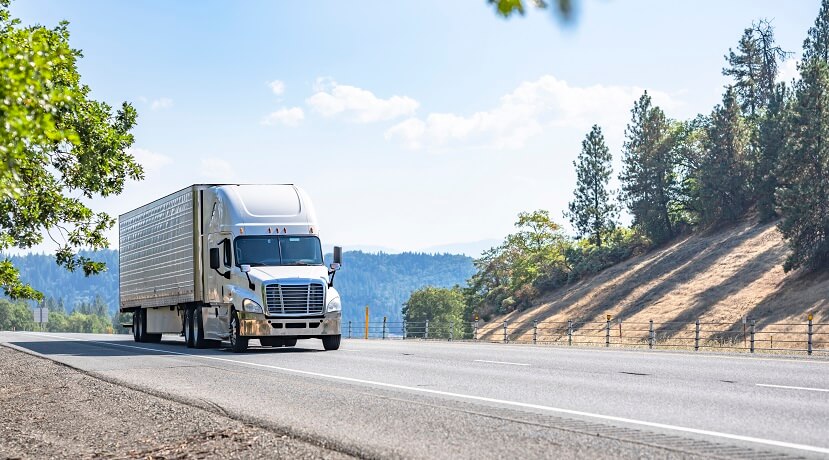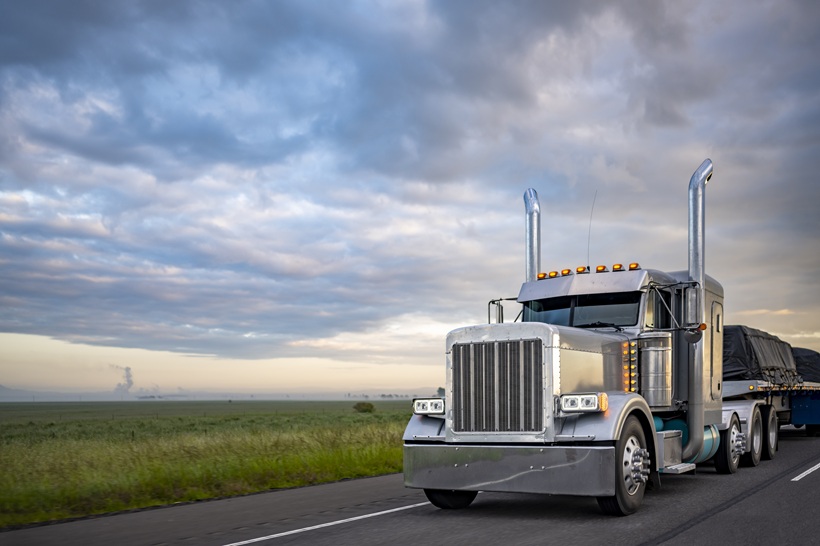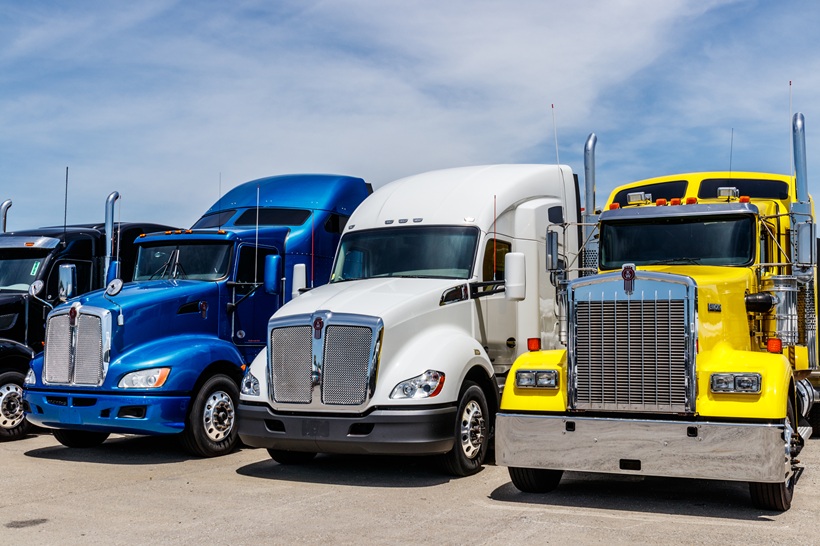
2020 Vision: Looking into a New Decade of Trucking
By Frank Adelman
These days you can’t scroll through news about trucking and logistics without stumbling over the word “disruption.”
Sure, technology may be changing the way fleets, owner-operators, drivers, 3PLs, and freight brokers tender loads and pay invoices…
…but with so much technology in the marketplace, adoption rates aren’t always high. Plus, it’s important to remember that the freight industry remains reliant on a certain amount of human interaction too.
Drivers, carriers, and brokers alike, want a centralized platform that’s trusted, stable, and connects all professionals within the supply chain.
As we chart a path to success in 2020, we identify several technology trends that can minimize disruptions and distractions—and help users make better business decisions.
1. The Center-Stage App
Nearly 90 percent of truck drivers use their smartphones every day for work—primarily for navigation, phone calls, and texts.
3PLs, brokers, and load boards have their own mobile apps where carriers can find, bid on, and accept loads. And then carriers have apps designed to help drivers manage documents, hours of service, and other business processes. There are different apps for weather, truck stop loyalty programs, truck scale locators—you name it!
However, just because “there’s an app for that” doesn’t mean people will use it. Mobile users spend 85 percent of their time using just five apps. Managing updates, permissions, security, and user experiences for multiple apps is impractical and time-consuming.
What makes more sense…is to have everything on one platform with one point of access—a single mobile app that provides a complete view of everything that happens during a freight transaction: navigation, hours of service, track and trace, document scanning, fueling options, weigh station bypass—services they need to get the job done.
This and the ability to add solutions that extend the value of the platform, like Drivewyze weigh station bypass; Geotab integrated telematics; Cat Scale truck weigh station transactions; CoPilot navigation; and more.
The good news is Transflo has an app that does all of this: It’s called Transflo Mobile+.
2. A Community of Fleets, Drivers, 3PLs, and Brokers
On average, it takes a freight broker seven phone calls to find a qualified carrier, and each call typically takes two minutes. If you have 15 loads to cover, you’re spending almost four hours on the phone trying to agree to terms.
Owner-operators and small carriers use an average of 18 different freight brokers every month. They’re looking for partners that are easy to do business with, from the moment they look at the load post until the time their invoice is settled.
If there’s one way to ensure that you can do business effectively, it’s to be a carrier, 3PL, or broker of choice operating in a business ecosystem that’s built for collaboration and transparency.
3. Automated Freight Tendering
Digital freight brokering. Book-it-now buttons. Instant load tendering.
No matter what you call it, automated freight tendering is designed to eliminate lengthy load searches and negotiations, while automating manual processes. It allows freight brokers and 3PLs to focus on things their customers really value: the ability to solve problems, build strategies, and communicate on a personal level.
In order to cover every load, digital brokers need access to a lot of available capacity. Today, most of these brokers find carriers on the spot market without knowing much about them.
At Transflo, we have more than 60,000 carriers on our network and just over 250 freight brokers tendering $100 million in freight every day through our platform. The small broker that wants automation in tendering, track and trace, and invoicing doesn’t have to develop their own book-it-now technology and convince the market to adopt it. They can leverage ours through a familiar, easy-to-use center-stage mobile app.
The result is a level playing field for all brokers on Transflo’s centralized platform, with the ability to manage an entire workflow—including load tenders, shipping documents, digital data extraction, load visibility, invoicing, and expedited payment processing.
4. Personal Connections
We look at our platform as a launching pad for solutions that can strengthen connections among drivers, carriers, and brokers.
For example, we know that track-and-trace technology with GPS pings and geofencing provide carriers and brokers with reliable, automated notifications without having to always speak directly to the driver.
However, human interaction is still a big part of transparency and collaboration. Carriers and freight brokers want drivers to know that they’re being listened to.
With Transflo Velocity+, owner-operators and company drivers can live-chat with freight brokers through the app and eliminate time-consuming phone calls.
In 2019, we introduced Transflo Engage, giving fleets the ability to measure driver satisfaction with surveys delivered directly from within the Transflo Mobile+ app. It’s a simpler, more convenient, and more personal survey experience since the driver is responding to questions within the mobile app he or she uses as part of an everyday workflow.
Live-chats, surveys, and other personal communication help drivers feel more engaged and respected, which leads to improved morale, lower turnover, and a better bottom line.
Looking back, the Transflo story involves a rich history of innovation. In the 1990s, we developed new scanning and imaging technology. In the 2000s, we pioneered new techniques in physical and digital document management. At the start of this decade, we’ve redesigned driver experience by introducing new mobile workforce solutions.
We’re proud of the robust digital platform we’ve built for the industry—and as we map the road ahead, the future looks bright.
Join the digital ecosystem. Learn more today.



